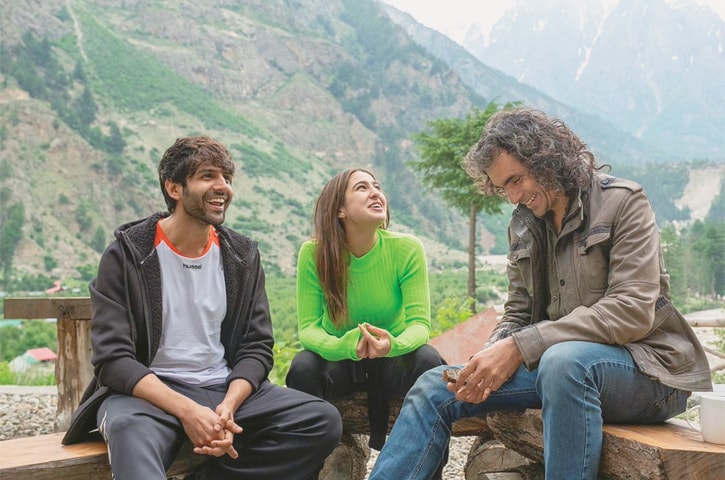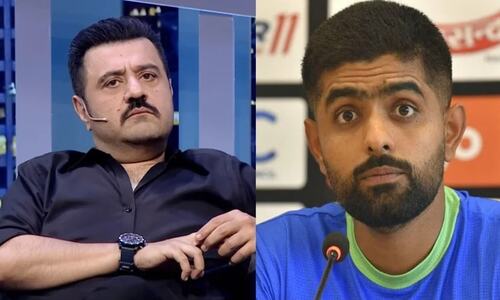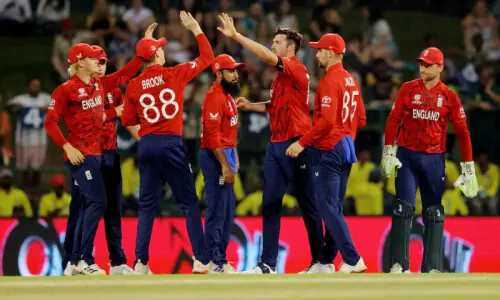
You now get the feeling that Imtiaz Ali is just faffing around — in a way no filmmaker should.
For the longest time, a joke about him was that he makes the same movie over and over again: a directionless man, a manic-pixie dream girl, a literal and metaphorical journey of finding one’s ‘true self’, end credits.
His 2014 drama, Highway, the best Bollywood film of the year, was based on an episode of the anthology series Rishtey (1999), written and directed by Ali. Then came Tamasha, whose tagline, prominently displayed on the poster like medals on the chest of a war hero, read, “Why always the same story?” It looked like an expression of condescension flung at the audience — the kind of arrogance perhaps expected from a great, eccentric auteur. The problem with Ali is that he’s neither great nor eccentric. (And not even an auteur.) Then came Jab Harry Met Sejal — referencing his 2007 movie in the title — of which the less said, the better.
With his latest release, Love Aaj Kal, Ali has managed to pull off a stunning cinematic robbery. He’s remade his own film. Same title — he didn’t even bother adding a ‘2’! Same story, with (very) little changes. Same producer. Same songs: two numbers from the original resurface here with slight modification. It’s not as if the original, the middling 2009 drama starring Saif Ali Khan and Deepika Padukone, was the Casablanca (1942) of the aughts.
The first thing that strikes you about Love Aaj Kal is Ali’s poor conception of love
The first thing that strikes you about Love Aaj Kal is his poor conception of love. Everything here is segmented, an extension of the simplistic either/or world. There’s either love or sex. Career or love. Old days or the new age.
Veer (Kartik Aryan) and Zoe (Sara Ali Khan) meet for the first time at a bar. Sparks fly, they end up at his pad, make out, and just before they’re about to have sex, Veer says, “Don’t you think we’re underutilising this moment?” And stops. The implication is that he’s so into Zoe that he can’t have sex with her.
At that point, I wanted to say, “Okay, Boomer.” The irony? This scene is set in 2020. (The other part, like the original Love Aaj Kal, is set in an older era, the late 1980s to ’90s.)
After this scene, Veer begins stalking Zoe. Equating stalking to love has become such a tired trope that it no longer elicits any feeling — not even disgust. Worse, we have no idea what made Veer fall so hard for Zoe. Ali shows no conversation between them, doesn’t even show what Veer saw in her. We’re simply expected to assume that Veer somehow has intense feelings for the girl.
This kind of sloppiness, where the characters’ feelings markedly alter without any credible reason, mars the entire movie. This worldview that prioritises emotions over people — disregarding reasons and individualities — is misleading, even dangerous. It’s not just simplistic but also belongs to worlds that thrive on monoculture and post-truth.
Which makes perfect sense, for Ali is a deeply conservative filmmaker in the garb of being ‘modern’. What’s more offensive about his films in general, and this one in particular, is not his conservative bent, but the fact that he postures so hard to be hip.

Worse, this mindset, fixated on slotting people, gives rise to paper-thin characters. Till one point, Zoe is only concerned about her career. Wanting to open an event management company, she’s got it all planned out till the age of 55. Veer is only concerned about her and nothing else, not even his career.
Later, Zoe takes a U-turn. Now she only cares for Veer, not even her career — so much so that she even declines a much-cherished offer. Veer, on the other hand, wants nothing. He’s the manic-pixie dream boy, his only purpose in the story is to make Zoe realise her ‘true self’. These are not people but thesis statements, and to hear them hold forth on love and life is the equivalent of watching a coked-up 20-something at a house party, saying “Bro” a lot, confusing banality for profundity.
The high points in this film are so few that you can literally count them on your fingers. Khan brings a lot of spontaneity, verve and humour to a lacklustre role. Aarti Bajaj’s editing is consistently impressive. The first quasi-sexual encounter between Veer and Zoe — a moment shared by jumpy strangers — materialises via… jump cuts. When Raghu is telling Zoe his story, Bajaj often juxtaposes two frames separated by a soft boundary: a concise way to convey multiple stories. A song right after the interval, cut feverishly, is even more of an impressive achievement, distilling a lot of information in a short span of time.
As far as Ali is concerned, there’s one fleeting scene where you see some strains of vulnerability and feel something. A scene where Raghu remembers his past and reflects on his mistake of committing too early. It’s just a moment, though, and it goes as quickly as it comes.
There’s another moment though that stays with you longer. At one point, Zoe asks Veer, “Tum humesha stupid hi rahoge na?” To which he replies, “I can’t help it, Zoe. Main koshish karta hun.”
Are you even trying, Imtiaz? — By arrangement with The Wire
Published in Dawn, ICON, February 23rd, 2020






























